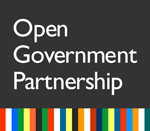Collaboration and Accountability: Monitoring the Implementation of the US Open Government Plan
Guest post by Abby Paulson- Open the Government  The Obama administration publicly declared a dedication to open government early on with a pledge to become the most transparent in history and later co-founding the Open Government Partnership (OGP). The OGP requires participating countries to create National Action Plans including concrete commitments to improve government openness. The first and second US National Action Plans cover a wide range of openness issues—from improving the Freedom of Information Act, to making fossil fuel subsidies more transparent, to improving the examining privacy issues in big data.
The Obama administration publicly declared a dedication to open government early on with a pledge to become the most transparent in history and later co-founding the Open Government Partnership (OGP). The OGP requires participating countries to create National Action Plans including concrete commitments to improve government openness. The first and second US National Action Plans cover a wide range of openness issues—from improving the Freedom of Information Act, to making fossil fuel subsidies more transparent, to improving the examining privacy issues in big data.
Civil society is intended to be a partner with governments in the creation and implementation of the plans. That set-up makes the OGP a singular opportunity and challenge for governments unused to making internal processes public. It also provides a unique lever for civil society organizations to set a high bar for implementation and ensure the Plan doesn’t devolve into a “check the box” exercise.
In an effort to do that, US civil society groups conduct their own evaluations of the US Plan. OpenTheGovernment.org enlists the expertise of groups like Publish What You Fund to monitor the implementation of the commitments, and to make sure there is outside pressure on the government to continue working on issues even after it has technically met the wording of a commitment. (The final report on the first National Action Plan is available here.) The US government issued the second Plan in December 2013 and has until December 2015 to fully implement it.
To ensure momentum, civil society publishes progress reports on the government’s efforts to implement the Plan every six months. The first progress report, issued in June 2014, set a baseline by asking organizations if the government seems to be on track to fulfill its commitment; and if the agencies responsible for implementation are working with civil society. In addition to the basic questions answered in the first report, the coming December report will cover whether organizations think the commitment is being implemented in a way that will matter.
In the second National Action Plan, the US government committed to “add or expand detailed, timely, and high-quality foreign assistance data to ForeignAssistance.gov.” In the first progress report, the CSO team set expectations for what “detailed,” “timely” and “high quality” should mean, and evaluated agencies’ progress based on those standards. In this way, civil society plays a crucial part in illustrating what successful implementation looks like in practice and working with government officials to make the vision a reality. As Publish What You Fund’s Catalina Reyes noted in her recent blog, a midterm evaluation should do more than hold the government to account—it should be a launch pad for the government to ramp up efforts in the final year of implementation.
As a co-founder of the OGP, the US has a responsibility to create and execute ambitious open government plans that live up to the OGP’s goals of increasing public integrity, managing public resources more effectively, and improving public services. In a September 2014 memorandum, President Obama affirmed that “[t]he participation of civil society is fundamental to democratic governance. Through civil society, citizens come together to hold their leaders accountable and address challenges that governments cannot tackle alone.” That memo was directed at US collaboration with CSOs internationally, but the sentiment rings particularly true as the administration hits the one-year mark for its open government plan. By continuing to collaborate with civil society, the US can set a high international standard for open government reform.

